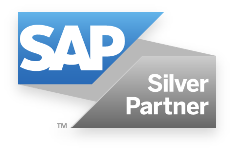Why it’s taken 30 years to find the perfect job costing system

“Many companies now recognise that their job costing systems are inadequate for today’s powerful competition. Systems designed mainly to value inventory for financial and tax statements are not giving managers the accurate and timely information they need to promote operating efficiencies and measure product costs.”
You may have read the paragraph above and nodded sagely. It refers to a common challenge encountered by engineering services companies, as well as many firms in manufacturing, distribution and other industries. This challenge is discussed in industry forums and online discussion groups, and at networking events on an almost daily basis.
But would you be surprised to learn that this statement is taken from an article published by the Harvard Business Review in January 1988? It seems incredible that more than 27 years later, many businesses are still struggling to find an adequate job costing system – one that serves the financial and operational needs of their company equally well.
Our experts frequently speak to people who are experiencing this challenge. They’re usually finance directors at firms in the engineering services industry (providing project-based services and maintenance for industrial equipment, for example) who are struggling to control project costs.
With a number of different costs related to each project (critically, involving both time and materials), the FD finds it difficult to assess profitability. Often, they’re using an accounting software package that their business is starting to outgrow. And when unforeseen problems occur, the lack of visibility in their systems means that managing project costs and keeping everything on track is almost impossible.
ERP vs accounting software
For people in this kind of situation, it’s easy for a consultant to say ‘you must upgrade to an ERP system’. And to an extent, this is true – an ERP system can collect and process vast quantities of data very quickly, whereas a standard accounting software package cannot. This means finance directors and other managers have access to the data they need to make decisions – a hugely important feature when an organisation starts to grow and managers can no longer physically ‘see’ everything that is going on in the business.
However, for an industry like engineering services in particular, simply upgrading to an ERP system will not provide the complete job costing software solution you might expect.
Job costing with ERP
The issue lies with the precise nature of job costing in the engineering services industry, where jobs are costed on the basis of time/labour and materials.
Many ERP systems are fundamentally product-based because they were initially designed for manufacturers that put a product together. This works well for manufacturing businesses, but less well for customer-based companies like project engineering firms.
In this kind of ERP system, tracking a multitude of different costs to a single job is difficult – it can be done, but as a manual process (in SAP Business One, for example, a project code must be used).
There is an easier way. That’s why we have put together a guide, “What’s the best solution for job costing in the engineering sector?”.
{{cta(‘d5bef96e-09fa-4dd9-acb6-e8e0290013ce’)}}

